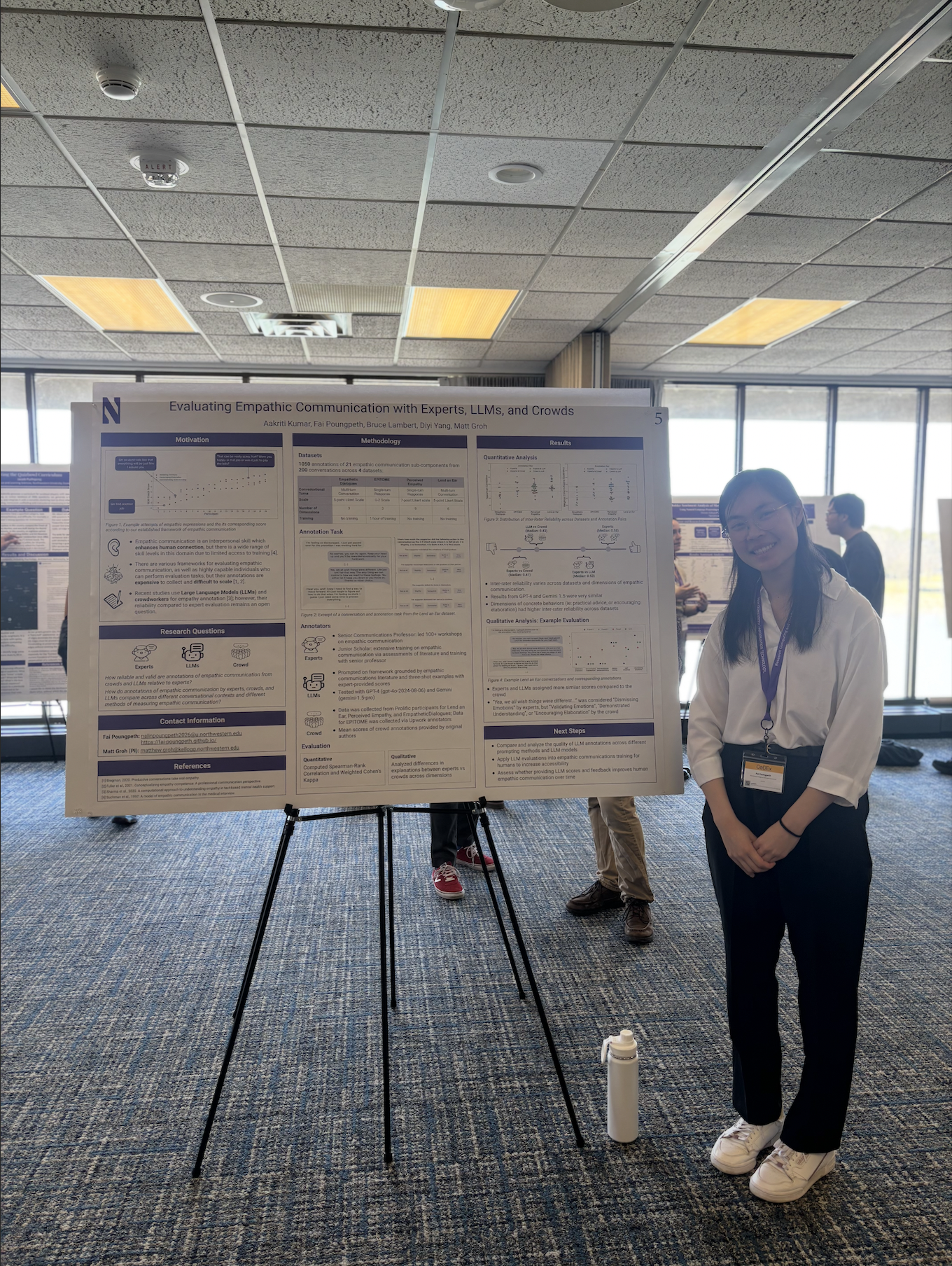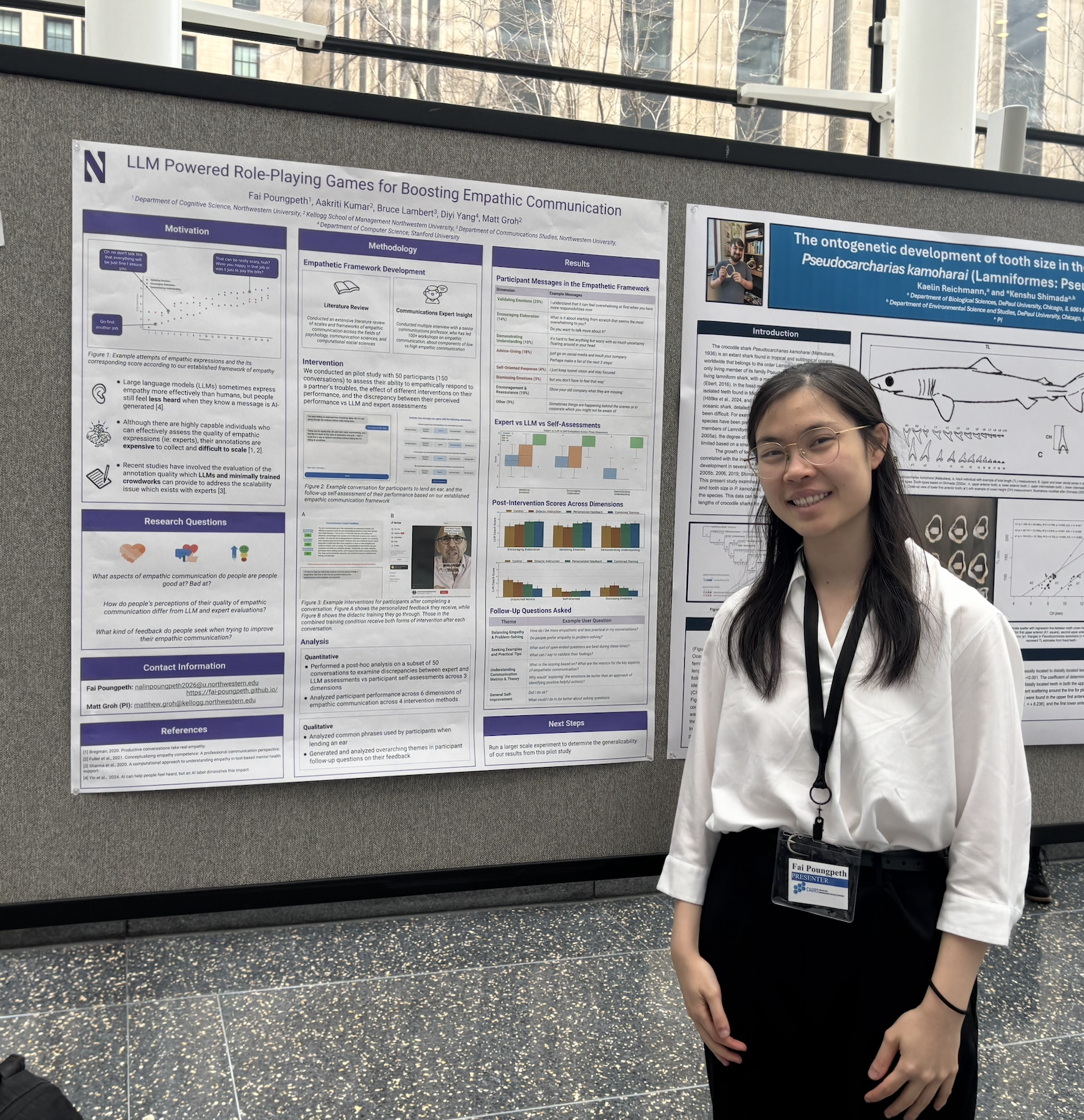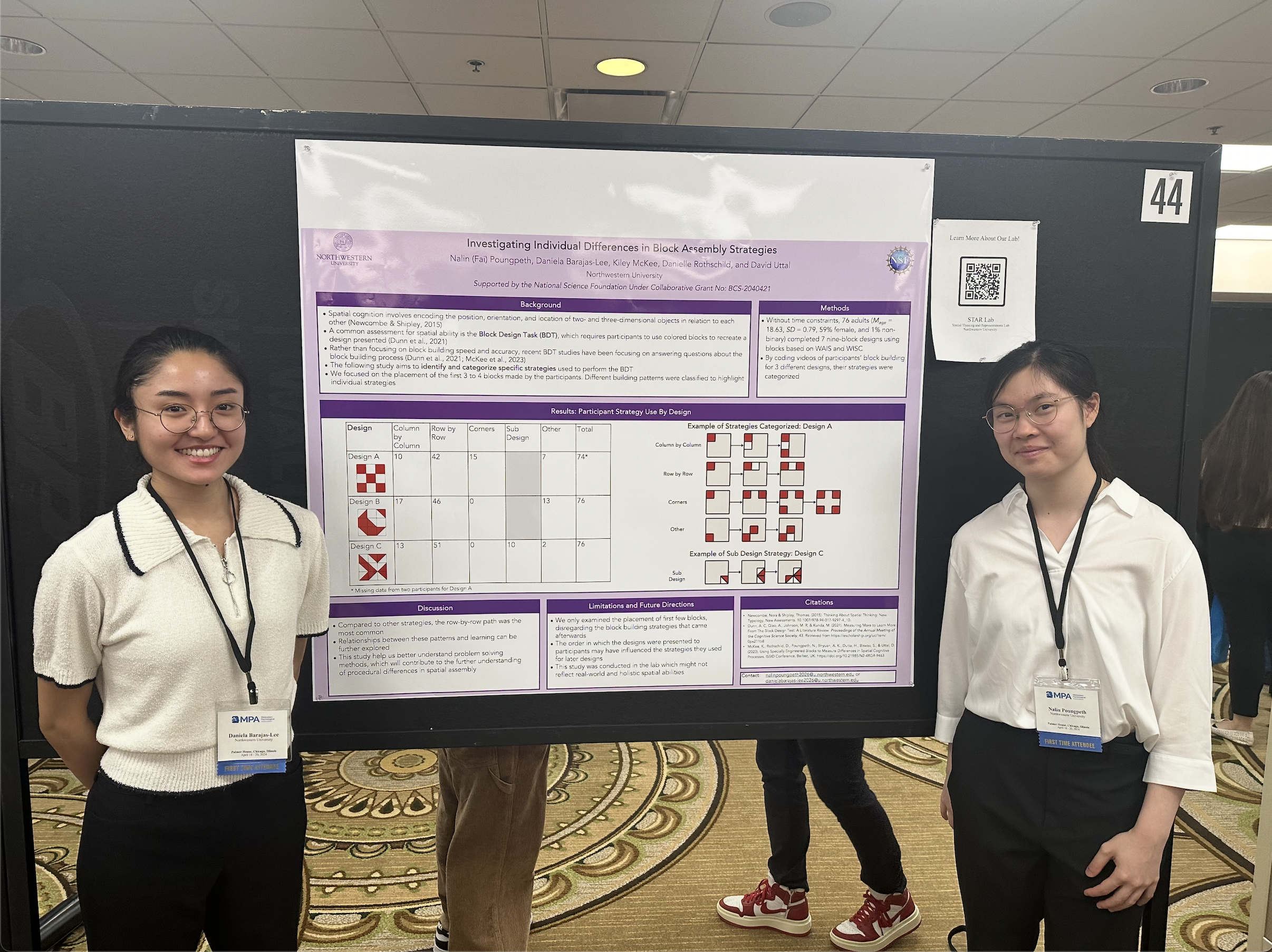Achievements & Updates
Robert J. Glushko Prize for Undergraduate Excellence in Cognitive Science Recipient
May 20th, 2025
The Robert J. Glushko Prize for Undergraduate Excellence in Cognitive Science Recipient is awarded to one undergraduate student each year for demonstrating "outstanding achievement in coursework across the Cognitive Science curriculum, independent, original research that contributes to Cognitive Science, significant contributions to faculty-directed Cognitive Science research as a research assistant, and exceptional leadership of extracurricular opportunities for Cognitive Science undergraduates at Northwestern". This year, I was recognized as the winner of this award at the Northwestern University Cognitive Science Festival 2025.

Evaluating Empathic Communication with Experts, LLMs, and Crowds Presentation
April 8th, 2028 & May 20th, 2025
Empathic communication is an interpersonal skill that can transform a conversation from a mere information exchange into a meaningful human connection. Recent empirical studies have demonstrated large language models (LLMs) have the capability to identify instances of empathic communication and even express empathy, but their performance depends on the conversational context. We investigate the inter-rater reliability of experts, crowds, and LLMs for empathic communication by comparing annotations of 21 empathy-related features in 200 conversations across four datasets where one partner is sharing a problem and the other is offering empathetic support. We aimed to answer the questions: How reliable are annotations of empathic communication from crowds and LLMs relative to experts? How does this differ across sub-components of empathic communication How do annotations of empathic communication differ across different types of LLM models and prompting techniques? I presented a poster of our findings at the Computational Data Exchange Conference 2025 and the Northwestern University Cognitive Science Festival 2025.

LLM Powered Role-Playing Games for Boosting Empathic Communication Presentation
April 19th, 2025
What does it mean to empathize with a person? While recent research has revealed that large language models (LLMs) can sometimes express empathy more effectively than humans, people still feel less heard when they know a message was AI-generated. These findings reveal the human need for emotional connection from other humans, presenting an opportunity to leverage LLMs’ capacity to help improve people’s empathic communication rather than trying to replace it. Motivated by this potential, we investigated: How does people’s empathy expression change when receiving different forms of feedback? What is a justified framework for evaluating empathic expressions? What reactions do people have when receiving AI-generated feedback on their empathic communication? I had the opportunity to present the findings of our pilot study for this project at the Chicago Undergraduate Research Symposium, 2025.

Launched BWF Badminton World Rankings Analysis Website
June 10th, 2024
I developed a website which provides users with the ability to custom analyze badminton world ranking data. It was a personal project for me to explore data visualization techniques using R. The website contains three core features: a map for users to see the distribution of the top 100 players from 2013-2023, a line chart for users to compare the rankings of any two top players from 2022-2023, and a stacked bar plot for users to see the distribution of top 50 players across disciplines for a specified country.
Investigating Individual Differences in Block Assembly Strategies Presentation
April 18th - 20th & May 23rd, 2024
The block design task is a common assessment for spatial ability, where participants use 3D colored blocks to recreate 2D designs presented to them. I investigated specific strategies which undergraduate students used to perform this task, and created a poster to present my findings at the Midwest Psychological Association Conference 2024 and the Northwestern University Undergraduate Research and Arts Exposition 2024

Cognitive Science SURF Grant Recipient
April 17th, 2024
I received a $4000 research grant through the Northwestern University Cognitive Science department's Summer Undergraduate Research Fellowship program. I researched how large language model role playing games can be used to help people improve their empathic communication. In particular, I focused on developing a comprehensive framework for evaluating the quality of empathic expressions, and designed an experiment for measuring whether these skills transferred to in-person interactions. I will be presenting the findings of this project to cognitive science students and faculty in May 2025.
Fletcher Undergraduate Research Grant Nominee
September 28th, 2023
The Fletcher Undergraduate Research Grant acknowledges the most outstanding research projects conducted by Northwestern students each summer. Students who are nominated for this award tend to have demonstrated significant accomplishment, highlighting their intelligence, creativity, and dedication. I am honored to have been nominated for this award by my faculty sponsor, who I conducted research with in summer 2023.
Prioritizing the Ethical Dimensions of Computer Science Article Feature
May 19th, 2023
I was featured in an article published by Northwestern University's computer science department, after working with the NU Tech Ethics Initative to incorporate ethics into Northwestern University's computer science curriculum. In particular, the article discusses our work to incorporate ethics modules into the course content for Fundamentals of Computer Science I and Data Structures and Algorithms.
Summer Undergraduate Research Grant 2023 Recipient
April 12th, 2023
I received a $4000 research grant through the Northwestern University Office of Undergraduate Research's Summer Undergraduate Research Grant program. I researched the relationship between undergraduate students' abilities to perform the block design task, which is used to measure spatial cognition, and their global vs local processing. In addition, I also investigated the similarities and differences in spatial assembly patterns which children and undergraduate students used.